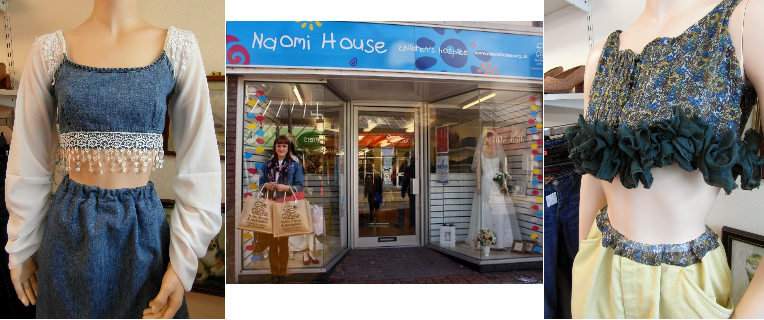Black is effortlessly cool and subtly powerful. It can complement a classic beauty or rebel against society.
And it seems to be a prominent trend within our culture:
- "buying clothes that aren't black is hard"
- "it's black clothes or no clothes"
- "spring: black clothes, summer: black clothes, autumn: black clothes, winter: black clothes"
- "black clothes are a way of life"
- "black clothes are good for the soul"
- "how do I start buying clothes that aren't black?"
As today is World Goth Day, I'm pondering on what it is that makes the colour so appealing.
Is it really best? The legends of monochrome think so,
"Black is the most slimming of all colours. It is the most flattering. You can wear black at any time. You can wear it at any age. You can wear it for almost any occasion. I could write a book about black." — Christian Dior
I have said that black has it all. White too.
Their beauty is absolute. It is the perfect harmony.” ― Coco Chanel
Black matches with everything, flatters any figure or complexion and never goes out of style.
Black enables you to blend in, it's the symbol of secrecy and the unknown, and as a result it creates an air of mystery.
This is not to diminish the comfort zones or preferences of those that choose to wear all black, but isn't black just playing it safe?
When you see how stunningly bold colourful clothes can be, you realise how boring it is to wear black everyday.
There's no need to lose the air of sophisticated cool that black creates, by going crazy with clashing patterns and eccentric colour palettes, however, sometimes life is better with a bit of colour.
Colour is daring and valiant, allowing us the room to experiment and make some major mistakes. In many ways, colour provides the freedom of expression and risk-taking that black lacks.
Black is cool, but colour has more fun. Always.
Colour is daring and valiant, allowing us the room to experiment and make some major mistakes. In many ways, colour provides the freedom of expression and risk-taking that black lacks.
Black is cool, but colour has more fun. Always.
'One is never over-dressed or underdressed with a Little Black Dress.' - Karl Lagerfeld
Read more at http://www.marieclaire.co.uk/blogs/542820/the-40-best-style-quotes-of-all-time.html#xwGtSjfDapGL5wvJ.99
Read more at http://www.marieclaire.co.uk/blogs/542820/the-40-best-style-quotes-of-all-time.html#xwGtSjfDapGL5wvJ.99
'One is never over-dressed or underdressed with a Little Black Dress.' - Karl Lagerfeld
Read more at http://www.marieclaire.co.uk/blogs/542820/the-40-best-style-quotes-of-all-time.html#xwGtSjfDapGL5wvJ.99
Read more at http://www.marieclaire.co.uk/blogs/542820/the-40-best-style-quotes-of-all-time.html#xwGtSjfDapGL5wvJ.99
'One is never over-dressed or underdressed with a Little Black Dress.' - Karl Lagerfeld
Read more at http://www.marieclaire.co.uk/blogs/542820/the-40-best-style-quotes-of-all-time.html#xwGtSjfDapGL5wvJ.99
Read more at http://www.marieclaire.co.uk/blogs/542820/the-40-best-style-quotes-of-all-time.html#xwGtSjfDapGL5wvJ.99
'One is never over-dressed or underdressed with a Little Black Dress.' - Karl Lagerfeld
Read more at http://www.marieclaire.co.uk/blogs/542820/the-40-best-style-quotes-of-all-time.html#xwGtSjfDapGL5wvJ.99
Read more at http://www.marieclaire.co.uk/blogs/542820/the-40-best-style-quotes-of-all-time.html#xwGtSjfDapGL5wvJ.99
'One is never over-dressed or underdressed with a Little Black Dress.' - Karl Lagerfeld
Read more at http://www.marieclaire.co.uk/blogs/542820/the-40-best-style-quotes-of-all-time.html#xwGtSjfDapGL5wvJ.99
Read more at http://www.marieclaire.co.uk/blogs/542820/the-40-best-style-quotes-of-all-time.html#xwGtSjfDapGL5wvJ.99
'One is never over-dressed or underdressed with a Little Black Dress.' - Karl Lagerfeld
Read more at http://www.marieclaire.co.uk/blogs/542820/the-40-best-style-quotes-of-all-time.html#xwGtSjfDapGL5wvJ.99
Read more at http://www.marieclaire.co.uk/blogs/542820/the-40-best-style-quotes-of-all-time.html#xwGtSjfDapGL5wvJ.99





